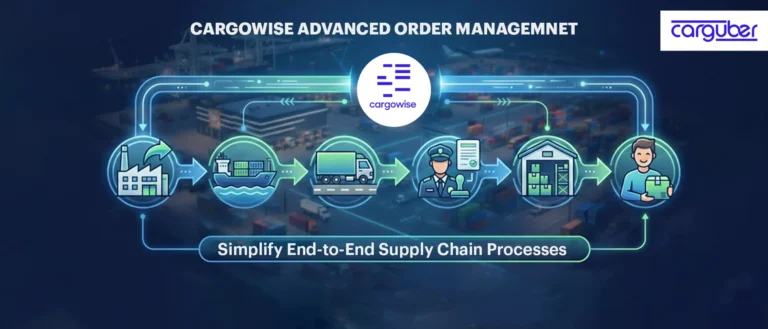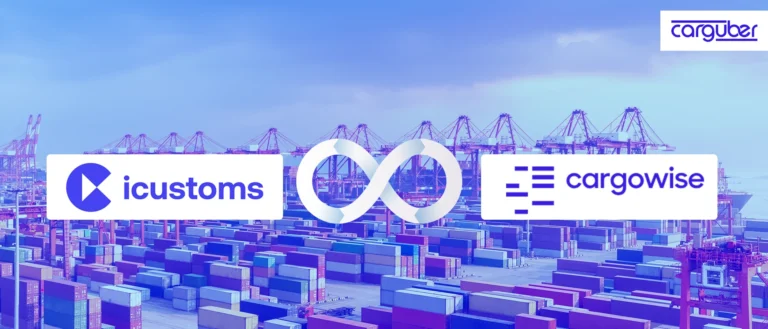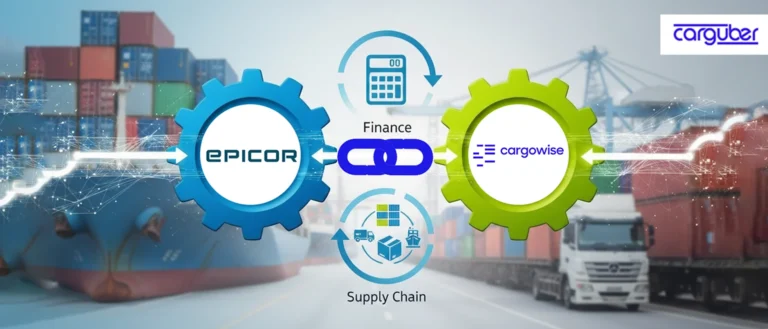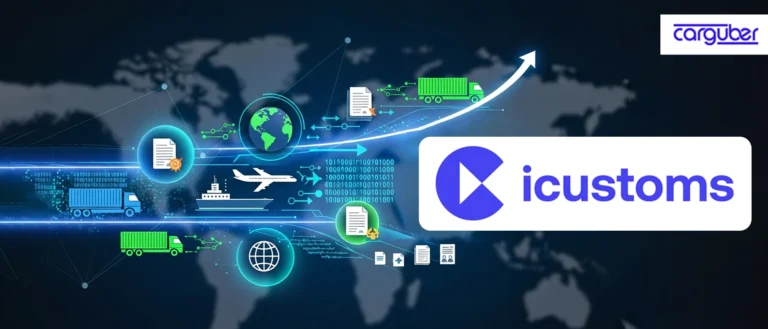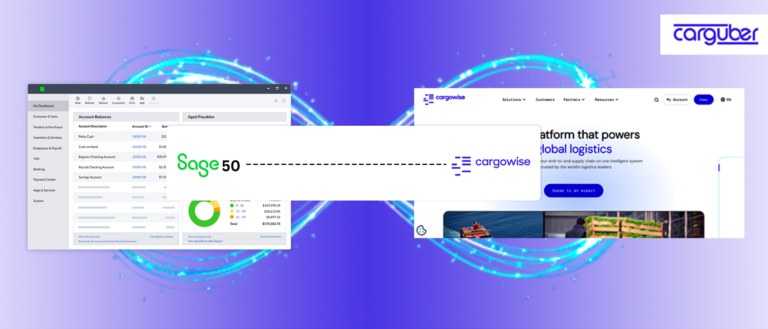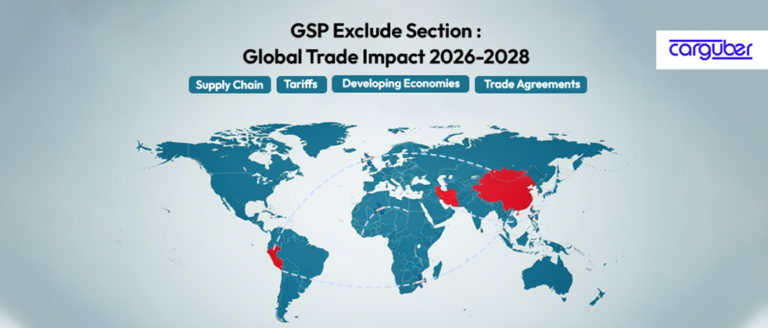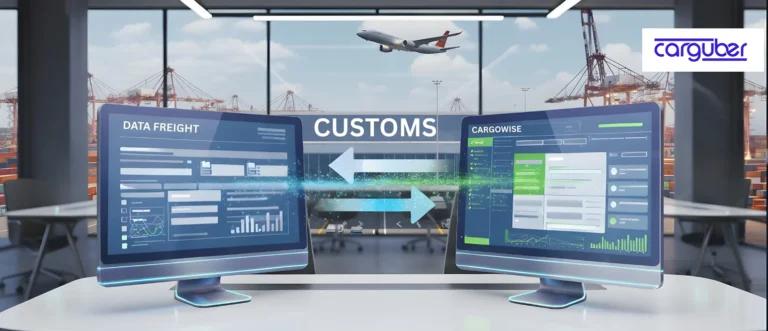What is DataFreight Customs Software and How does It Empower Freight Forwarders to Manage Customs More Efficiently?
Every day, freight forwarders must manage hundreds of moving goods, shipments in transit, last-minute requests from customers, unexpected regulatory changes, and constant coordination among carriers, warehouses, and customer care teams. Under all of this pressure, customs clearance is frequently the point at which everything either flows smoothly or fails.
A single inaccurate tariff code, a missing invoice detail, or a mistyped weight value can hold a shipment at the border. Suddenly, delays turn into frustrated customers, rising costs, and endless hours of chasing corrections across multiple systems.
For logistics professionals, customs isn’t just paperwork; it’s the heartbeat of cross-border operations. DataFreight customs software brings relief to this complexity. Built for the realities of freight forwarding and customs brokerage, it centralizes customs filings, freight operations, and logistics workflows into one connected environment.
Understanding DataFreight Customs Software
DataFreight is more than just a system for filing customs declarations. It is a comprehensive logistics platform that enables freight forwarders, customs brokers, and warehouse operators to manage every aspect of their operations. The platform enables businesses to prepare, submit, and manage customs declarations across several countries using a single interface, while also managing freight forwarding and warehousing activities concurrently. Key aspects include:
Intuitive Job Build & Data Entry: A clean, structured workflow that reduces typos and speeds up job creation.
Multi-Modal Support: Air, ocean, road, and courier operations are all managed through a common interface.
Flexible Customizable Documentation: Users can create export/import documentation, declarations, and commercial paperwork to meet client or regulatory requirements.
Full Integration with HMRC Modules: Supports all current HMRC regimes in the UK through all Community System Providers, such as CDS (Customs Declaration System), NCTS (New Community Transit System), CFSP (Customs Freight Simplified Procedures), NES (National Export System), and bonded processes.
Invoicing & Job Costing: Financial tools built directly into operational workflows to ensure accurate billing and margin visibility.
Dynamic Account Links: Automated sync between operational data and accounting systems.
Full and Effortless Integration with SAGE Accounts: Removes duplicate entries and assures real-time financial accuracy.
Diary & Audit Functionality: Automated reminders, task tracking, and full compliance audit trails.
Sophisticated Rating System: Configurable tariffs, contract rates, surcharges, and customer-specific pricing.
Strategic Management Reporting: Powerful analytics for operational KPIs, financial performance, and customs compliance.
Fully Customizable Web Tracking Application: A branded customer portal providing shipment visibility and document access in real time.
Together, these capabilities make DataFreight a powerful, all-in-one platform that simplifies logistics operations, strengthens compliance, and gives freight forwarders the visibility and control they need to operate with confidence and efficiency.
How does DataFreight Simplify Customs Processing for Logistics Providers?
DataFreight combines intuitive job-building, multi-modal shipment processing, and customizable documentation in a single platform, allowing forwarders to decrease human labor and keep all transport modes aligned within a single workflow.
Its tight interface with UK customs systems, like CDS, NCTS, CFSP, and NES, enables customers to submit declarations, manage transit movements, and conduct bonded procedures all within the system. This improves accuracy, expedites approval, and reduces compliance concerns.
The system also improves financial and operational visibility by including integrated invoicing, job costing, SAGE accounting links, diary and audit tracking, automated rating, and a real-time customer web-tracking interface, resulting in a more connected and transparent logistics process.
Challenges Freight Forwarders Face Without Integrated Systems
Many logistics providers still operate with disconnected systems. One system may handle customs declarations, and another is used for freight operations. This fragmentation often leads to errors, delays, and inefficiencies. Manual data re-entry between systems consumes time and increases the chance of mistakes. Operations teams may lack visibility into the status of shipments or customs filings, which slows decision-making and risks non-compliance.
In a high-volume logistics environment, these challenges can create delays, impact customer satisfaction, and increase operational costs. Standalone customs software, while capable of generating declarations, cannot resolve these broader inefficiencies on its own.
Why is Integration Essential for Maximizing DataFreight’s Capabilities?
Integration transforms DataFreight from a powerful tool to a connected logistics ecosystem. By integrating the platform with systems such as CargoWise, Infor, or other logistics ERPs and brokers, a simplified procedure is created in which data flows automatically between the operations, finance, and customer service teams.
This integration reduces duplicate data entry and assures correctness at all stages of the process. It provides real-time visibility into shipment status, customs clearance, and inventory levels. Executives can have access to unified data that delivers actionable insights, and teams can work more efficiently together, decreasing delays and improving service delivery. Integration not only increases efficiency; it also enables organizations to be proactive, identifying problems before they occur rather than reacting to them.
Operational Benefits of Integrating DataFreight with Core Business Systems
A fully integrated DataFreight environment gives forwarders measurable advantages. Customs clearance speeds up and reduces errors thanks to computerized validation. The operations, financial, and customer service teams all work from a single source of truth, which reduces confusion and increases compliance.
Higher Productivity
Teams process more declarations in less time, without hiring additional staff.
Improved Compliance
Automated rules and cross-platform validation keep data accurate and up-to-date.
Faster Customs Clearance
Shipments move more quickly through borders thanks to consistent and correct filings.
Enhanced Customer Experience
Clients receive timely updates, faster turnaround, and fewer unexpected delays.
Financial Accuracy
Duties, VAT values, and cost allocations flow directly into ERP billing modules.
Furthermore, integration enables logistics companies to expand operations without increasing manpower. As shipments increase, automated procedures and linked data keep operations running smoothly, reliably, and compliantly.
How does Carguber Enable this to build a Connected DataFreight Ecosystem?
Carguber specializes in integrating DataFreight with other major logistics ERP platforms to create a fully integrated ecosystem. By connecting DataFreight to CargoWise, Magaya, Infor, Project44, GoFreight, or any logistics ERPs, Carguber ensures that shipment data, inventory records, and customs information move easily throughout the system and enable businesses to run smoothly.
Apart from integrating systems, we offer automation solutions to decrease repetitive operations, real-time monitoring and reporting to improve visibility, and continuous improvement to guarantee the system evolves with the business. Our competence guarantees that forwarders can fully realize the benefits of DataFreight while maintaining compliance, eliminating errors, and improving operational efficiency.
Conclusion
DataFreight provides freight forwarders with a solid platform for managing customs and logistics workflows, but its true value is seen when it works as part of an integrated ecosystem. Forwarders may get the speed, precision, and visibility they need to succeed in today’s fast-paced global market by integrating DataFreight to ERP systems, accounting tools, and client platforms.
Contact Carguber today to set up an integrated DataFreight environment that will ensure your supply chain runs smoothly.

